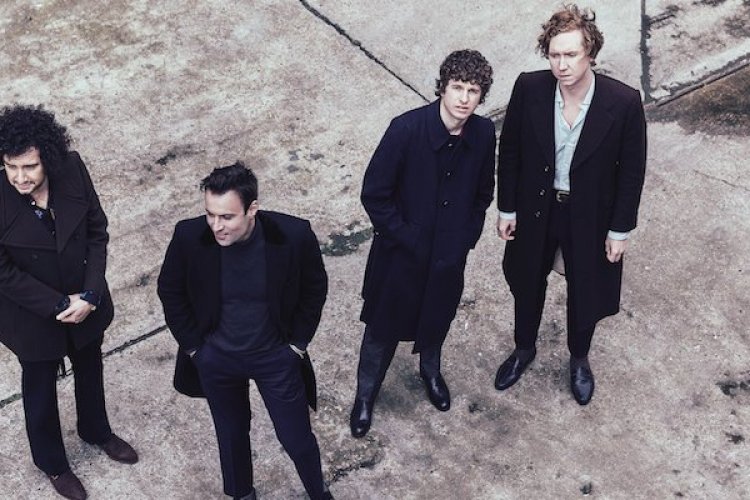Zen Thoughts
“Zen is as much about carrying water and wiping your butt as it is about a pretty sculpture or a sand garden,” says Bill Porter. “It’s inseparable from your daily life.”
Also known as Red Pine (his pen name as a translator of Buddhist texts), Porter has written several books on Zen Buddhism, including the groundbreaking Road to Heaven, an intimate portrait of Chinese Zen (Chan) hermits. His latest book, Zen Baggage, is a lighthearted yet soulful tale of his recent pilgrimage through China tracing the paths of the six Buddhist patriarchs.
We asked him to tell us about it- if you want to hear more, he’ll be speaking about his travels at the Bookworm on July 7, 7.30pm.
What inspired you to go on the pilgrimage?
Well I’m a Buddhist, and there’s nothing like a pilgrimage to inspire one to take a pilgrimage. I’d been meaning to write something on Zen, and it occurred to me that if I began in Beijing and ended up in Hong Kong, I could sequentially encounter the 6 patriarch teachers of Zen in china as well as deal with some issues underlying in Zen in a sequential matter. So I began in Beijing, then went to Datong, and Wutai Shan, then down to Shijiazhuang for a monastic environment to lay the background of the more formal part of the pilgrimage.
Your writing is quite humorous- does Zen Buddhism allow for humor in a way that most religions don’t?
Well it almost demands it. Religions tend to be, lets say, they tend to be religions. And Zen is not really a religion - it’s a way of living fully, aware of what you are doing. Our lives become so encumbered with projection and layers of socially demanded behavior patterns, and there are different ways that Zen has developed to deal with it.
There’s nothing like humor to poke through it, to show people the illusory nature of what they think is so serious about life and death. By making jokes about it and pulling the rug out from under people’s feet, they have an easier time getting rid of their own personal baggage. Zen is the only spiritual thing in China where you can find as much humor as your talking about- you don’t get that in Pure Land Buddhism, or in other forms of Buddhism.
What is involved in monastic Zen practice?
In other forms of Chinese Buddhism you have people living in a monastery and coming to worship almost as they would in a church, but you’re talking mainly about Pure Land Buddhism. Zen monasteries are for people who want to live there full time and practice in a way that they can see through the illusory nature of life and death. Meditation is an important part of their practice but so is sweeping the floor. It focuses on what you are doing everyday rather than learning something from a book and going into a hall and chanting and calling that your practice.
There are ceremonies in the halls, but the outward form - the formal aspect of Zen practice in China - it doesn’t compare with, say, the formal practice of say, Japan.
Partly, that a reflection of the different character of the two cultures - the Japanese are very anal retentive, they love order. The Chinese are more anarchists. They have their own ceremonies, ceremonial events where people are talking and chatting and carrying on in a way that you would never find in Japan, for example.
But the focus is a Zen monastery is on what you are doing. That’s why the transmission of that doesn’t focus so much on learning doctrine as it does of being reminded who you are and where you are.
How do the lives of monks in monasteries compare to the lives of hermits?
In a monastery its communal, whereas in the mountains, you’re on your own. When a person enters the monastery in China its like going to a university, its like earning a BA degree from a teacher. But if you want to earn your PhD you have to go to the mountains.
In a monastery, you’re teacher will tell you if they think the answer you’ve learned is the proper answer. You go to the mountains though, and all the questions and answers are up to you.
Most people who become hermits don’t spend more than five years in the mountains, and then they come down - but then there are a lot of people who just like it up there, and have been up in the mountains 20, 30, 40, 50 years. You meet people who live in the mountains and there will be college students visiting them, or communist party officials. People who are hermits attract people. They are not that isolated. People will come up for an hour or two to see them, or they even stay for a while- almost every hermit has room for another person or two on their kang, those brick oven beds.
It’s a practice that’s not for everybody, a lot of people wash out of the mountains- its cold, its lonely, it can drive people crazy to be by themselves.
Do most people who join a monastery do it purely to seek spiritual enlightenment, or is it also kind of a career path?
It definitely changes with the period in history. I mean in the 30s and 40s it was to get a meal. Many, many families would give up their child to a monastery because they just couldn’t afford to feed them.
People go there for an education, or people go there to get away from their parents - monasteries gets a diverse group of people, especially in our days because people think that joining a monastery to become a monk or a nun is a good career move and that certainly wasn’t true when I first started traveling in china. Now, monasteries are rich. As the Chinese become affluent, they start transferring their money to the next life. And of course you do this at your local monastery or nunnery, so they’ve had a huge influx of funds in the last ten years.
So right now becoming a monk or nun in china is attractive. And parents do not object nearly the way they used to, especially in the case of a son.
Besides words, are there other forms of communication better suited to Zen?
Oh sure, yeah. Have a cup of tea. A slap in the face, a poke in ribs. Here, go chop some wood.
Zen is the one Buddhist sect that has really shied away from words, and yet they’ve written more words than any of sect. They see language as being an inherent obstacle to spiritual development. Maybe necessary at a certain stage, when you are just trying to get a foot out of the red dust, which is what Chinese Buddhists call the world of sensation.
There is another way of looking at your life, and Buddhist texts can help with that, but looking at your own life is beyond words, its something only you can do- I can sit here all day and tell you how wine tastes, and you wont know until you’ve tried it.






